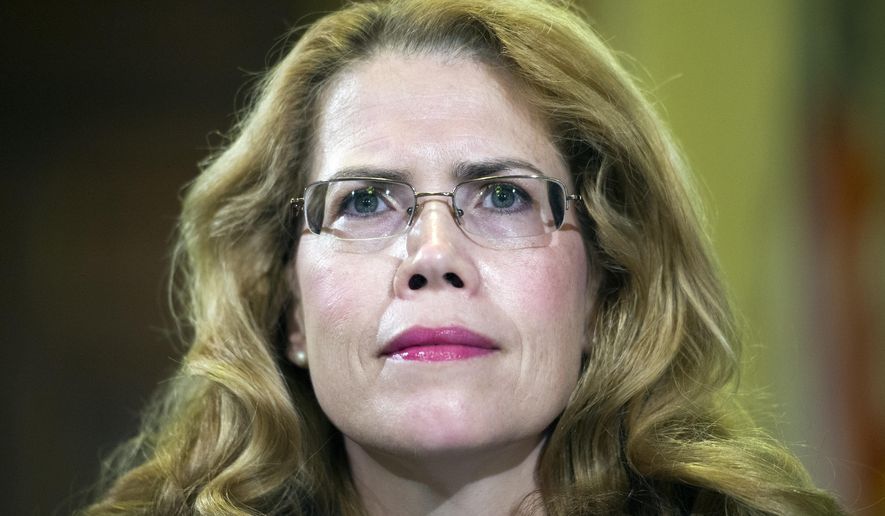The doctor who blew the whistle on shamefully poor treatment of veterans at the Phoenix VA medical clinic said Thursday that she is disappointed by the lack of progress in improving care and said she would tell new doctors not to sign up with the beleaguered agency.
Dr. Katherine Mitchell, who reported secret wait lists with names of as many as 40 patients who died while waiting for care, told Congress that the Department of Veterans Affairs failed to protect her confidentiality as a whistleblower, reassigned her to a different department and left her open to retaliation by fellow employees after she spoke out. She also said the department’s inspector general failed to follow up on her accusations of medical malpractice and wait lists.
Her complaints sparked a nationwide investigation that exposed poor care and secret wait lists at clinics across the country, but she said too little has been done to clean up matters.
“The VA still cares more about their public image than about patient care,” Ms. Mitchell told the Senate Appropriations subcommittee on veterans affairs.
Testifying alongside Dr. Mitchell, Dr. Lisa Nee, a cardiologist, said a panel of doctors at a VA hospital in Illinois implanted unnecessary coronary artery stents and performed coronary artery bypass surgeries to pad patients’ files.
“In the real world, this type of malpractice and fraud would result in serious repercussions for the physician as well as the health care agency, with monetary damages to the patient and/or family,” Dr. Nee said. “But this is the VA — a taxpayer-funded agency, which is allowed to ignore the law and behave with brazen impunity.”
Dr. Nee said she has left the VA to practice at private-sector hospitals.
Carolyn Lerner, special counsel at the U.S. Office of Special Counsel, which investigates and prosecutes cases of ethics violations and whistleblower retaliation, said 40 percent of cases the office sees are related to the VA.
Dr. Mitchell said she believes that number would skyrocket if the VA were more open to whistleblowers.
“I believe that percentage will go up significantly,” she said. “The amount of retaliation that’s going on in every facility throughout the nation for decades, if the employees are encouraged that they can come forward honestly, I believe that the VA will be 90 percent of their cases.”
Sen. Tom Udall, New Mexico Democrat, said Dr. Nee and Dr. Mitchell presented “damaging testimony.”
“The behavior you described is just absolutely appalling,” Mr. Udall said. “The lack of care in terms of really realizing that these patients are veterans and they need the best possible medical care. You came forward and you were treated badly because you were trying to expose the things that were out there.”
As the VA scandal unfolded, President Obama ousted the department’s secretary and appointed Robert McDonald as chief.
Mr. McDonald insists he is making progress, but a report by The New York Times said wait times for veterans have actually grown 50 percent and the department faces a budget shortfall that could shutter some facilities. Congress on Thursday cleared an emergency bill to plug the $3.4 billion hole.
Mr. Obama, speaking to the Veterans of Foreign Wars convention in Pittsburgh last week, acknowledged that “the VA’s still struggling to keep up with the surge of veterans who are seeking care.”
Congressional Republicans say the Obama administration needs to fire more poor performers to reform the department. The House passed a bill Wednesday to streamline the firing process. Democrats, however, argue that the legislation would take due process rights away from those who are fired, and the president has said he would veto the legislation if it came to his desk.
Linda Halliday, deputy inspector general for the VA, said she is working to change the culture at the VA that allowed for whistleblowers to be harassed by their co-workers and administration.
She said she is committed to setting the “clear expectations and tone for the organization” to ensure that whistleblowers’ complaints are taken seriously and to protect their identities if they report anonymously, she said.
• Anjali Shastry can be reached at ashastry@washingtontimes.com.




Please read our comment policy before commenting.